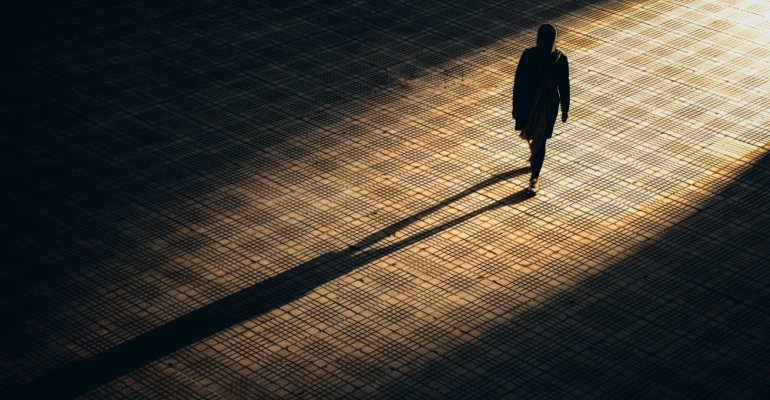
The Privilege of an Evening Walk
Late evening walks have become one of my favourite things in this lockdown. After a long day at my desk, often followed by an evening on Zoom, I enjoy getting out into the fresh air and the quietness of the evening. Those walks give me the chance to reflect on the day that’s passed or to think about the day that’s coming, or just to switch off. They are genuinely one of the highlights of my day.
Against this background, it’s been sobering to reflect that for my female friends, such a walk would probably be taken only out of necessity, not out of pleasure, and would be more likely to give rise to stress than enjoyment.
The disappearance and murder of Sarah Everard have brought to public consciousness the reality of violence against women in our nation. The news that a body, later identified as Sarah Everard, had been found came on the same day that MP Jess Philips read out the names of all the women killed in the UK over the previous 12 months where a man has been convicted or charged as the main perpetrator. The list contained 118 names. Reading it out took more than four minutes. The same week, the World Health Organisation reported that one in three women have been subject to physical or sexual violence. These national and global stories were accompanied by the testimony of countless women on social media.
It was the reaction on social media that I found most powerful. Seeing women I know and love, women whom I would think of as strong and confident, sharing that an evening walk would be a cause of stress for them was deeply moving. The walks I took in the days that followed suddenly felt like an incredible privilege.
One type of response among Christians particularly saddened me. Thankfully, I’m sure it is a minority opinion, but it saddened me nevertheless. Some Christians seemed to be taking the view that this is just an unfortunate consequence of living in a world contaminated by sin. In this age, violence against women will always be a reality, and so women will just have to find ways to protect themselves as they live in the reality of a sin-sick world.
Sadly, violence against women, like so many other things that are wrong in the world, will be ever-present in this age. It is yet another reason for us to pray ‘Come, Lord Jesus’ (Revelation 22:20). But that can’t mean we passively accept the reality around us. Jesus warned us that there would always be people in poverty (Mark 14:7), but that doesn’t mean we shouldn’t be active in seeking to reduce poverty. The early Church clearly understood that (James 1:27).
When I see the sinfulness of the world exhibited in the murder of a woman taking an evening walk or the killing of 118 women in the UK over the past twelve months, and when I see the fear that my friends feel walking on their own after dark, I don’t just see something to lament, I see something that requires action. The problem is deeply rooted – in society and in the human heart. There aren’t easy solutions, and there won’t be any ultimate solution until Jesus returns, but I can’t help but believe there must be a role for the church to play.
If I’m honest, I’m not sure exactly what that role is. There are some obvious and important first steps: affirming that the reality currently evident is not ok; listening to and learning from the women around us; affirming the value, worth and dignity of every woman; calling out language and actions that exhibit the sort of attitudes that feed into violence against women; challenging the objectification of women that is sadly evident in our society. There must be more than this, and we must find out what that more is. But we must act because the inevitable brokenness of this age isn’t an excuse to be passive, it’s a call to be active.